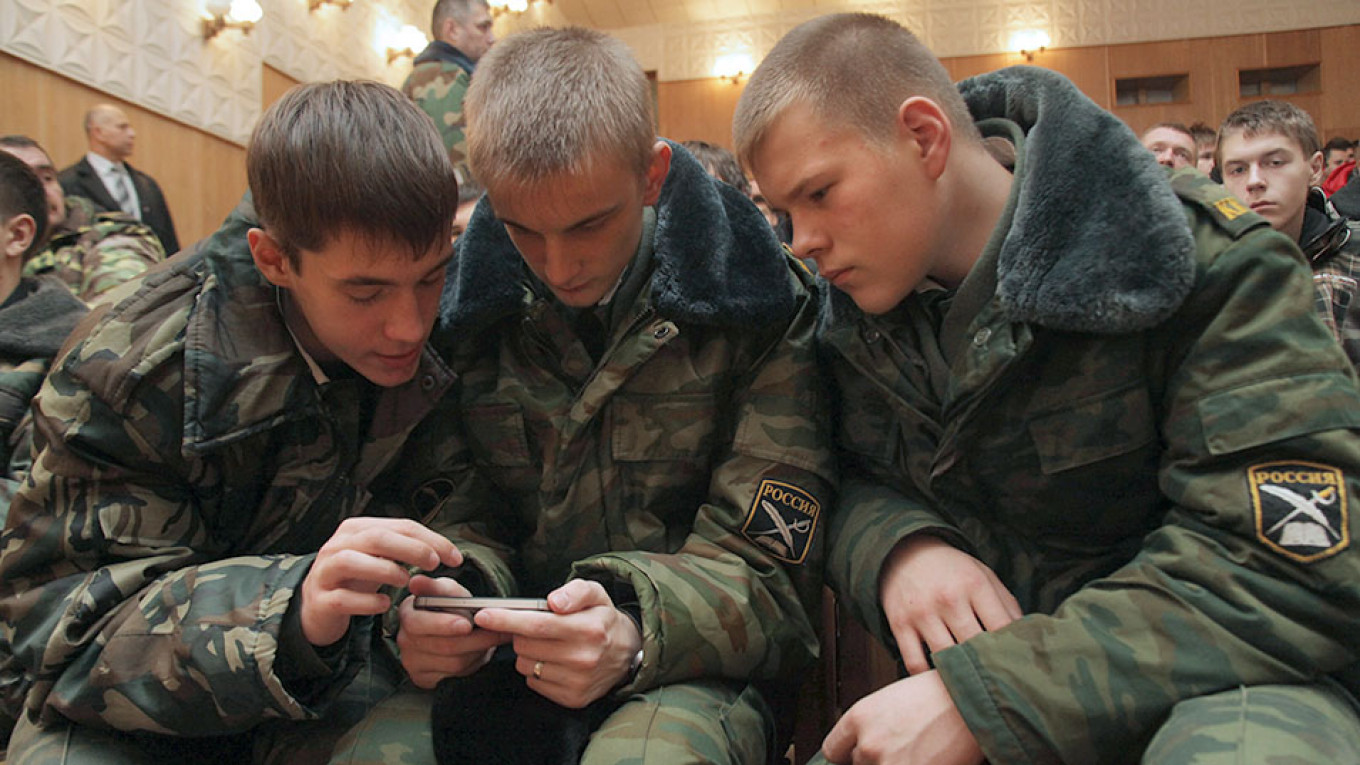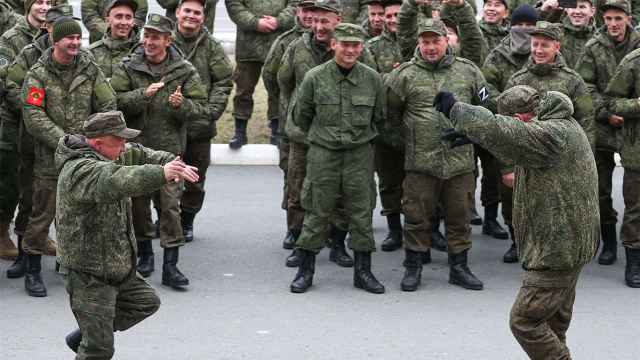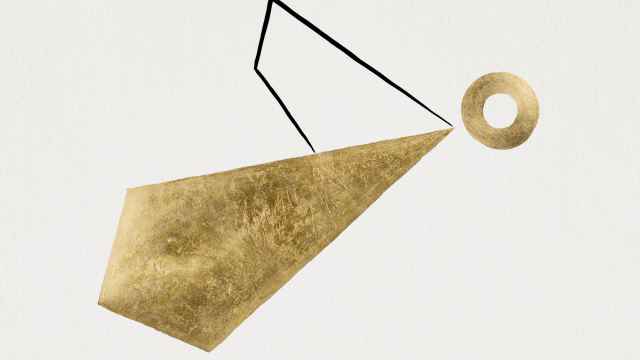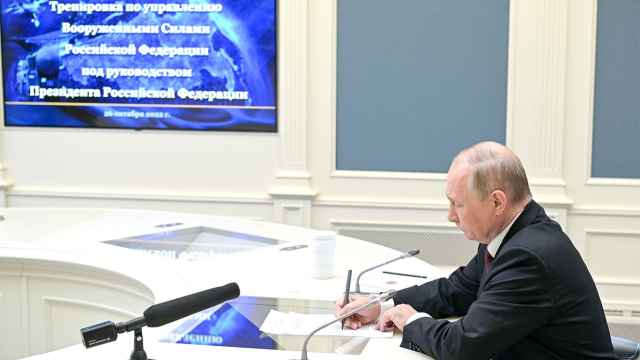Russian soldiers will no longer be able to take selfies or share information online under new legislation passed by the State Duma on Tuesday.
In recent years, online investigative journalism sites like Bellingcat have used open source data to cast light on Russia's alleged role in eastern Ukraine and other countries.
In a third and final reading on Tuesday, 90.7 percent of State Duma deputies voted in favor of the bill to ban Russian soldiers from uploading information that could give away their affiliation, activity or location.
The bill institutes a ban on the sharing of photographs, videos, and geolocation data and prohibits soldiers from sharing details about other servicemen or the relatives of servicemen. Those who break the ban will be subject to disciplinary measures.
The bill formally institutes a 2017 Defense Ministry recommendation to ban Russian soldiers from uploading compromising information online.
Before entering into force, the bill must pass through Russia’s upper-house Federation Council and secure President Vladimir Putin’s signature.
Reuters contributed reporting to this article.
A Message from The Moscow Times:
Dear readers,
We are facing unprecedented challenges. Russia's Prosecutor General's Office has designated The Moscow Times as an "undesirable" organization, criminalizing our work and putting our staff at risk of prosecution. This follows our earlier unjust labeling as a "foreign agent."
These actions are direct attempts to silence independent journalism in Russia. The authorities claim our work "discredits the decisions of the Russian leadership." We see things differently: we strive to provide accurate, unbiased reporting on Russia.
We, the journalists of The Moscow Times, refuse to be silenced. But to continue our work, we need your help.
Your support, no matter how small, makes a world of difference. If you can, please support us monthly starting from just $2. It's quick to set up, and every contribution makes a significant impact.
By supporting The Moscow Times, you're defending open, independent journalism in the face of repression. Thank you for standing with us.
Remind me later.






